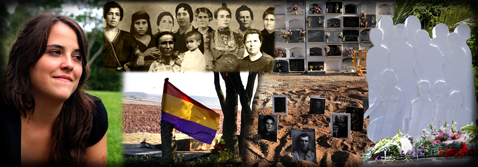M.Laura Martín-Chiappe
Graduated in Social and Cultural Anthropology from the Complutense University of Madrid, and Master in Public Orientation Anthropology from the Autonomous University of Madrid. She has an FPU Scholarship to carry out his doctoral thesis under the direction of Francisco Ferrándiz (CSIC) and Ainhoa Montoya (University of London). Her work focuses on the socio-cultural and political processes that have developed in the family, associative and local, from the exhumation of graves of reprisals by the Franco regime in Spain since 2000. Within her research interests are also the violence exerted against women in the Francoist rearguard and their (re) presentations from the exhumations of mass graves of women; the processes of transitional justice; the places of memory. Since 2014 she was part of the project’s research team CSO2012-32709 “The Underground Past: Exhumations and Memory Politics in Contemporary Spain in Transnational and Comparative Perspective”. Currently she is part of the research project CSO2015-66104-R “Below Ground: Mass Grave Exhumations and Human Rights in Historical, Transnational and Comparative Perspective”., and of UNREST (Unsettling Remembering and Social Cohesion in Transnational Europe) H2020 REFLECTIVE-5-2015, ref. 693523.
She has participated in different research projects around family diversity (LGBT families, ruptures and continuities); Diversity and coexistence in educational centers.
She was part of the team that made the documentary “Sin perder la ternura jamás” (Horacio Muschietti, 2006). Realized by ex-students of the National School of San Isidro, of the Province of Buenos Aires (Argentina), about the histories of life and militancy of ex-alumni and alumni disappeared during the civic-military dictatorship in Argentina (1976-1983) ; It deals with the meaning and commitment to political and social activity in the 60s and 70s and its correlation with militancy in the 90s and early 2000s.



